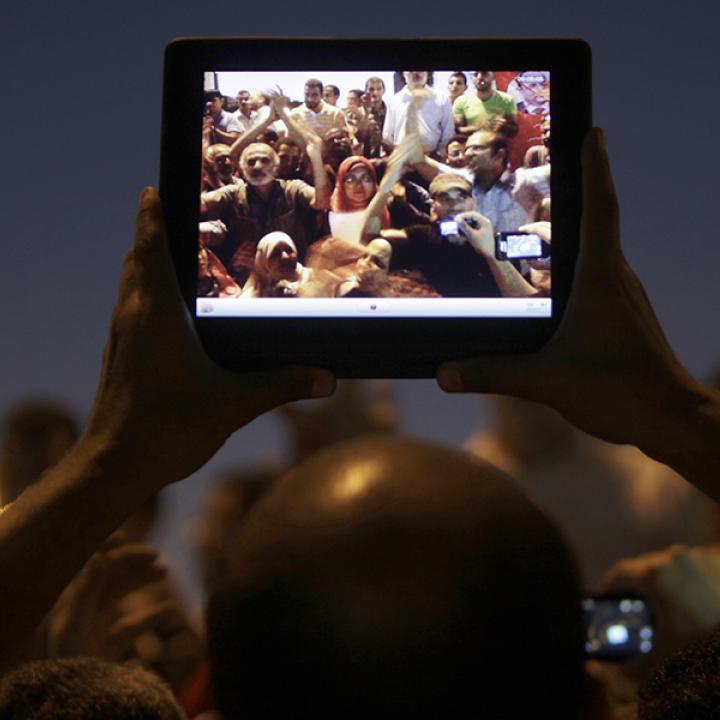
Why Has the Arab Spring Become the Arab Mirage?

After so much hope, what happened?
November 16, 2016
The “Arab Spring” has undoubtedly failed miserably, for instead of ushering in democracy and an era of prosperity and development, it is bringing disunity and discomfort to the inhabitants of the region who are already plagued by endemic poverty and lack of opportunity, and now have to put up with insecurity and the uncertainty of the future.
Scores of people regret the pre-Spring era because it provided job opportunity and security. Presently, they live in the uncertainty of tomorrow and the fear of not been able to feed their families. The poor and the middle class, if any, are not in the least apologetic for dictatorships, but if they have to choose between bread and democracy, they would go for the former and heaven can wait, after all.
To be honest, many intellectuals have never accepted the misnomer “Arab Spring,” used in the press for the era of protest and contestation ignited by the courageous act of Tunisian vegetable and fruit vendor Bouazizi. They argue that few flowers do not announce spring, nor make it.
What the Arab world witnessed from 2010 up to today is a series of uprisings, no more. Such an opinion will probably not be accepted by many democracy hopefuls, but the truth of the matter is that one has to be realistic and logical about the political reality of this part of the world.
Alas, democracy is still many light years away because the majority of the population is illiterate, tribal identity is extremely strong, the Mideast is too patriarchal, women are considered “part of the household”, pan-Arabism is still dominant and discriminating, poverty is omnipresent, the political system is built around rich reigning families who reject any system of meritocracy, and the time-old unequal distribution of national wealth is present at all levels. For all these reasons the so-called Arab Spring is a mere mirage.
Since the advent of Islam, power passed from one family or dynasty to another. The family/dynasty in power, after years of reigning, gets too corrupt and, as a result, weakens and another family/dynasty, strong and pure, waiting on the sidelines, takes over and rules for a period of time until it gets too corrupt and falls like a rotten pear. This is the theory of power articulated by the renowned social scientist and philosopher Ibn Khaldun (May 27, 1332 – March 19, 1406), in his opus Muqaddimah or Prolegomena, written in 1337.
When the Arab uprising first ignited in Tunisia and morphed into street anger that soon toppled the Tunisian dictator Ben Ali, the whole world cheered. The Arabs have finally succeeded in breaking down the “wall of fear,” especially in a country which had the highest level of surveillance of the citizens by one of the fiercest political polices in the world. Then the Egyptians got the revolution fever and toppled another Arab dictator, Mubarak.
At this point, the world spoke of the “Arab Spring,” too soon. Then Yemen fell, followed by Libya, which is as dramatic as the long, bloody, and brutal reign of Gaddafi. Next, there was an attempt to topple the first head of state of the Gulf region, in Bahrain, but the attempt was stifled in its cradle. Last but not least, Syria caught the disease, sowing death everywhere in the country but not resulting in the downfall Assad, who is still in power and as deadly as ever, not even shying away from using chemical weapons on his own “beloved” people. The Arab uprisings were started by the youth, dissatisfied with the tribal and patriarchal rule of corrupt and brutal leaders supported by obedient armies and co-opted political parties. Then as the movement took off the ground, the Islamist movements, as regimented as any movement could ever be, joined the fray along with the socialists and the communists.
After the fall of the dictators and the organization of free elections, the Islamists democratically grabbed power and embarked immediately in Islamizing, their societies in a flagrant manner, as was the case in Egypt.
All in all, after six years of uprisings, one wonders, what was achieved in the Arab world? The answer is not much, except maybe for the appearance of the Arab cyber citizen vociferously and ferociously eager to be free, the destruction of the “wall of fear” that impeded the political development of the Arab man, the abolition of the state of denial, and the withdrawal of legitimacy of reign from almost all existing political establishments.
The so-called “Arab Spring” has definitely gone to the dogs and the Arab world is, unfortunately, moving steadily towards an era of total chaos. One wonders, however, is this the beginning of creative chaos that will lead to better times for the region and its people, or the beginning of something else difficult to guess and, in the end, noxious?
Nevertheless there is hope, of course, for democracy in the Arab world and only time will show if this wishful thinking will materialize and become reality for millions of Arabs who are hungry for a change that will bring them dignity and wellbeing, at long last.


